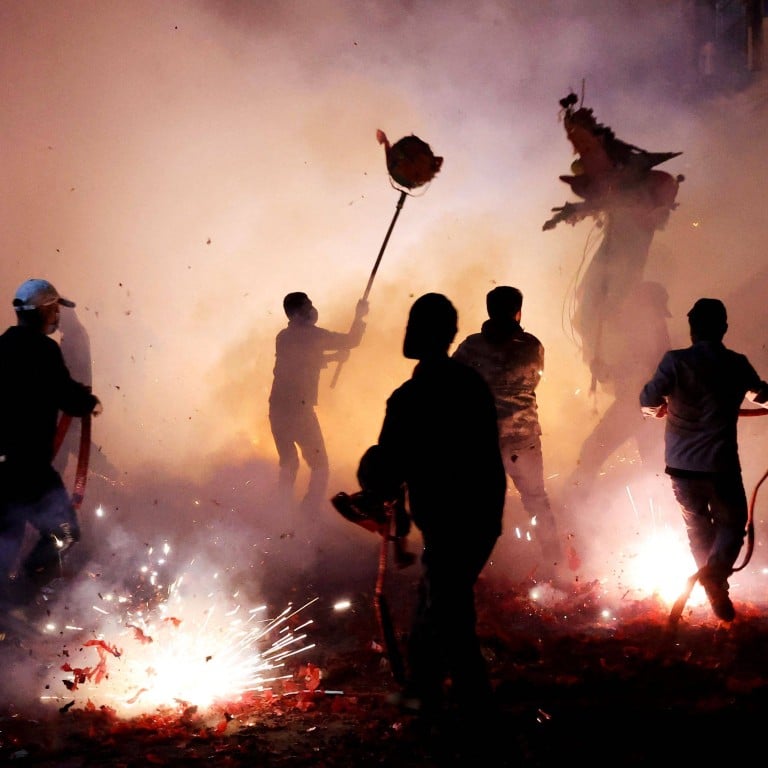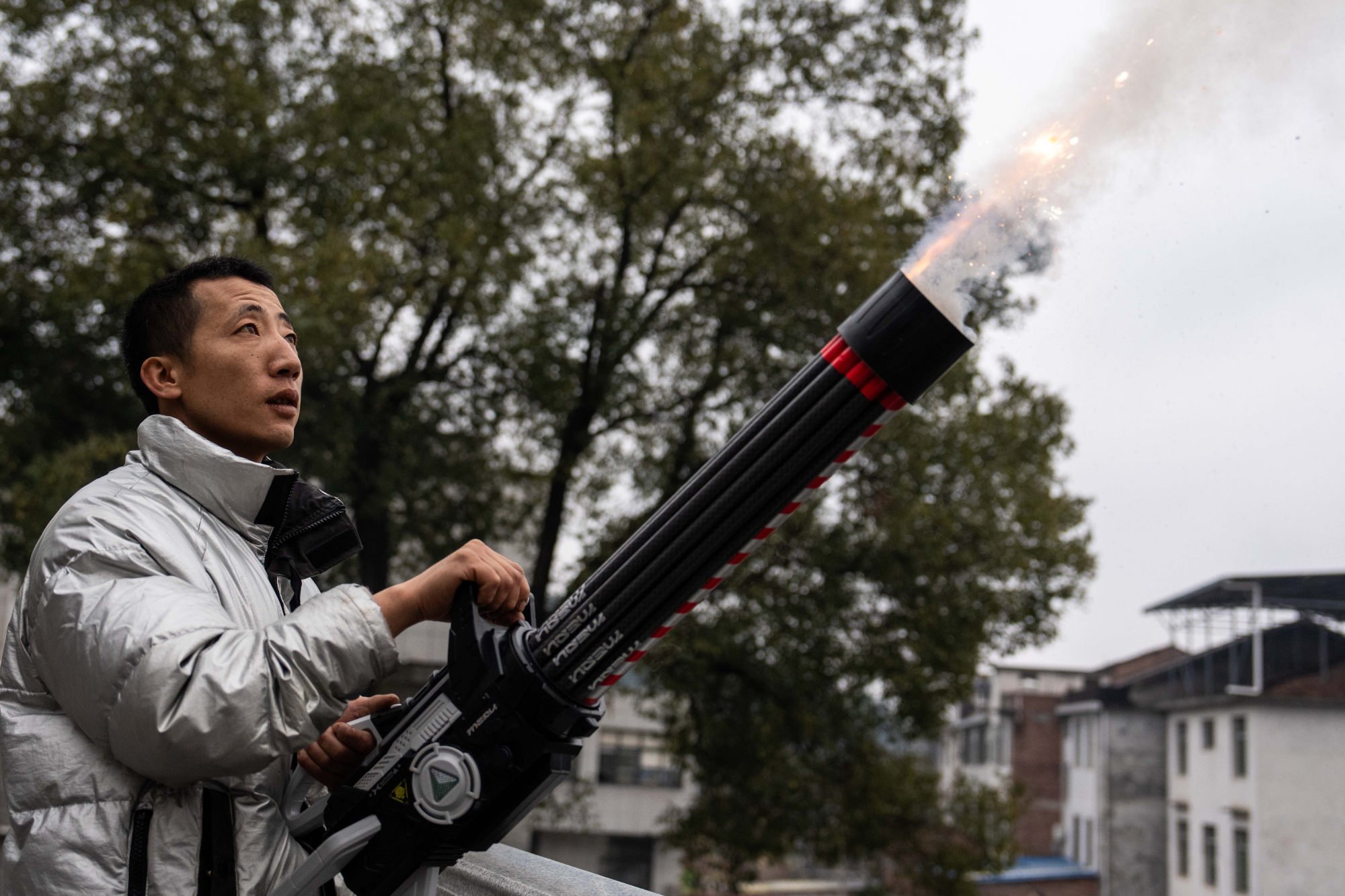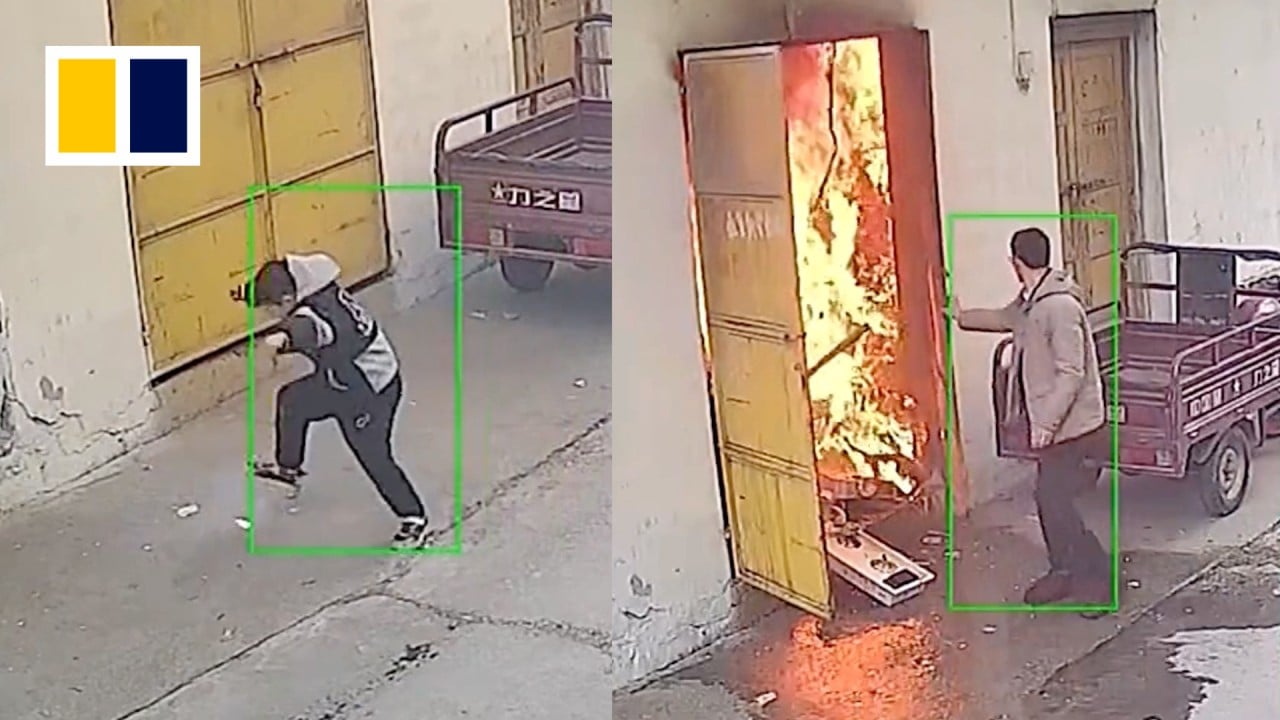
China’s Lunar New Year fireworks: even a beloved tradition can’t ignore public safety
- The debate over the ban on setting off fireworks and firecrackers to celebrate the new year arises anew every time the festival comes around
- A balance should be struck, and local governments have the leeway to set regulations appropriate to the situation
When I was in kindergarten, there was no holiday I looked forward to more than the Lunar New Year. And, out of all the traditions, lighting fireworks was my favourite.
What a sight that was! At least a dozen different types of fireworks set the night sky ablaze. One bloomed in four different colours, another spelled out “happy new year”, and my favourite one, shaped like a small plane, flew off tree branches and followed people around.
The entire neighbourhood would get together for this one night of fun, turning it into a large social gathering. At midnight, before we went to bed, we would hang a string of firecrackers outside our window and set it off to crackle loudly for at least five minutes, the last ritual to get rid of the bad luck in the past year.
As I got older, I began to see the other side of this tradition. I realised how difficult it was to clean the layers of debris the next day – the city cleaners would still be sweeping the streets a week into the new year; how the pollutants lingered in the air, smelling of sulphur; how annoying it was to be woken up at midnight, and sometimes again at 3am or 4am, by the sudden sound of firecrackers.
The ban tightened and relaxed over the years. As of today, most cities restrict fireworks to certain areas, usually far away from the city centre. For example, this new year, Beijing has banned all fireworks within the fifth ring road.

Every year, there’s a public debate about lifting the ban. One of the most frequently cited arguments is, “It doesn’t feel like the new year without fireworks”.
But it’s not just the banning of fireworks that has made the new year feel less entertaining. There are a number of reasons.
In the past, we seldom had large family gatherings, treats and new clothes until the Lunar New Year. It was a grand annual celebration that people looked forward to the entire year, and everyone partied hard.
Now, with improved transport and communication links, most don’t have to wait until the new year to get together with their family, making it less special.
Furthermore, traditional celebrations have become less common. Today, many people spend the new year holiday eating good food, watching TV or bickering with relatives. But when I was young, my parents would take me to Buddhist temples to make offerings, and the entire street would be filled with stalls that made candied animals, balloons and other toys. These festivals are rare today and they are always packed.
Denied even fireworks, it’s understandable that many people feel nostalgic.
However, those who call for lifting the ban should acknowledge the risks in lighting fireworks, as well as others’ right to dislike them. A simple search on Google uncovers many news articles of children throwing firecrackers in the sewage system and causing an explosion, or accidentally setting off fires.
Just last month, Chinese media reported that two boys playing with fireworks in Hunan province set 13 electric bikes and a building interior on fire, causing damage estimated at 40,000 yuan (US$5,500).
And, last Friday, Tianjin police detained two men after they lit fireworks in a restricted area and threw them at the police.
When it comes to regulating fireworks, a blanket ban does not work, because it’s difficult to enforce and there will always be people ignoring it.
Hong Kong police arrest boy, 15, in fireworks bust on Lunar New Year’s Eve
But local governments can have more detailed policies to balance all sides. China’s Regulation on the Safety Administration of Fireworks and Firecrackers already has strict standards on the production and sale of fireworks, and dictates that local governments can restrict the time, places and types of fireworks.
Local officials should address people’s concerns, regulating fireworks to be lit within reasonable hours and avoiding densely populated areas, away from hospitals, homes for the elderly and schools. There should be more public awareness campaigns about fireworks safety, ensuring children do not use them without adult supervision. Areas where fireworks are allowed should be equipped with firefighting equipment or located close to fire stations.
Traditions should only be celebrated when the public concerns of pollution, noise and safety are addressed, otherwise they become an excuse to create chaos.
Phoebe Zhang is a society reporter with the Post

.jpg?itok=H5_PTCSf&v=1700020945)
